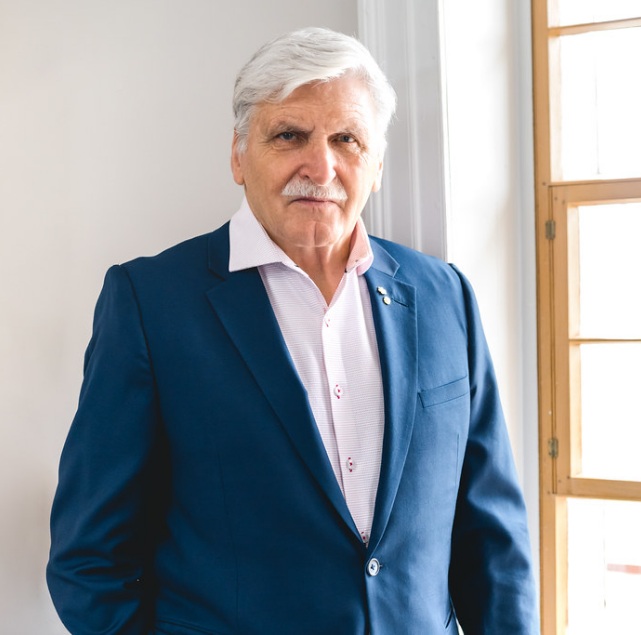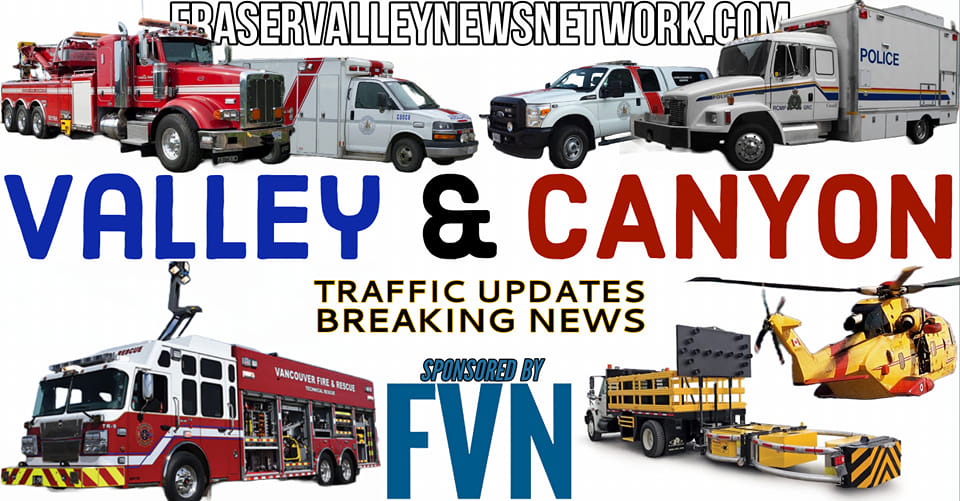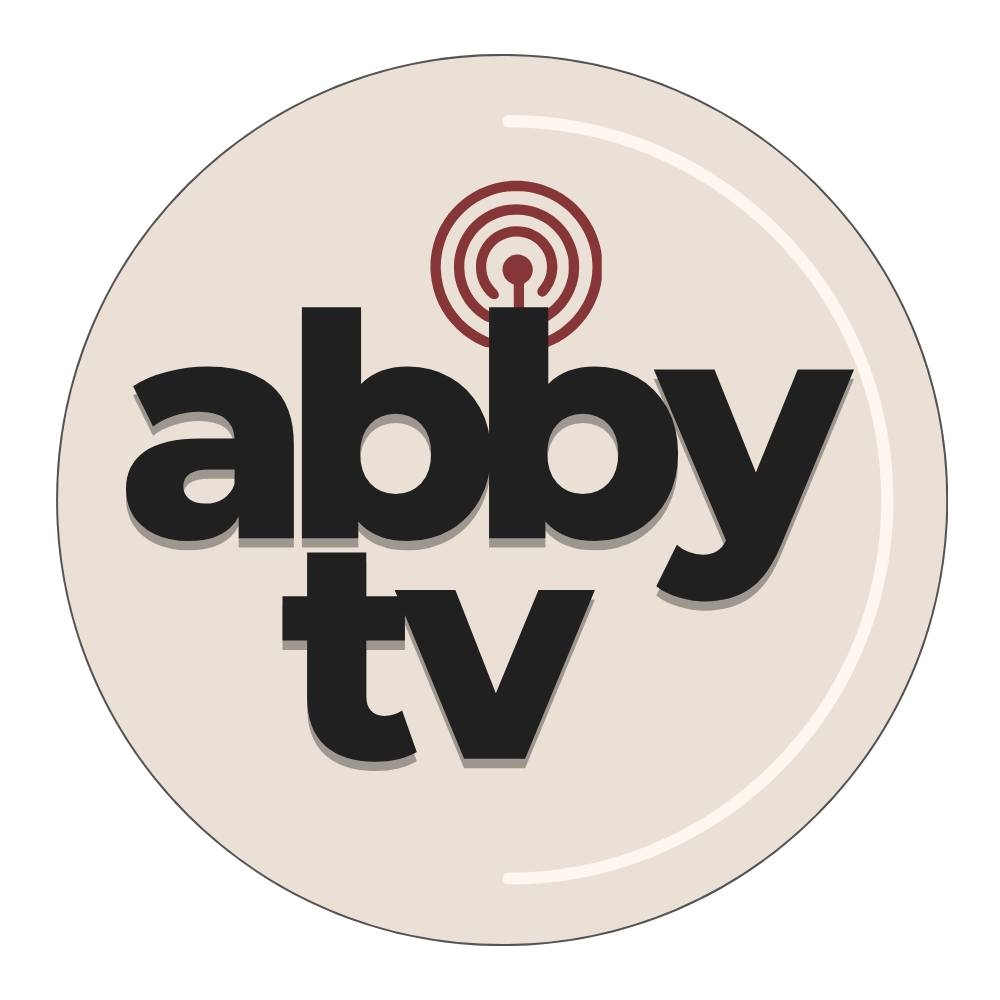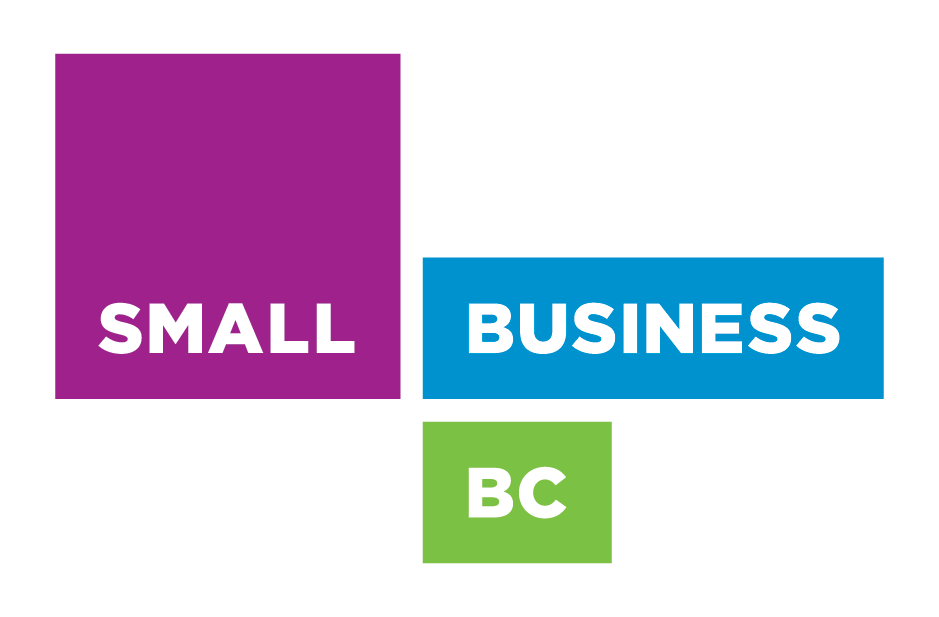Fraser Valley – Honorary Degrees from 2021 at UFV were named:
Romeo Dallaire receives honorary degree from UFV
As a highly decorated veteran, courageous champion for mental health, and passionate advocate against exposing children to the horrors of war, Roméo Dallaire is an inspiration to multiple generations across the world.
For this and much more, Dallaire was an honorary Doctor of Laws Degree from the University of the Fraser Valley in a private ceremony Friday, June 4. Given ongoing restrictions on large gatherings due to COVID-19, UFV will host a virtual Convocation celebration that premieres on Friday, June 18 at 7 pm. This event will highlight messages from each of the UFV’s honorary degree recipients.
Humanitarian, author, statesman, and retired senator and general, Dallaire was cast into the public eye while Force Commander of the United Nations Assistance Mission — peacekeepers forced to bear witness to Rwanda’s genocide that took more than 800,000 lives in fewer than 100 days.
His experience led to crippling PTSD, attempted suicide, and, ultimately, love.
“With his courage and compassion, Roméo Dallaire is changing our understanding of trauma’s impact on mental health, and through his efforts, he is improving lives in communities across the world,” says UFV President Joanne MacLean. “We are honoured to bestow him with this honorary degree.”
Dallaire says his award speaks as much to his message of peace and youth empowerment as it does his own accomplishments.
“It’s an honour that I’m humbly glad about, but especially that people still think what message I might have is worth identifying and passing on to others. It’s an opportunity to influence the future, where I think too often we’re simply trying to survive the future,” he explains.
“It’s vital in this effort that we engage with today’s youth.”
Dallaire’s long list of recognitions includes the Order of Canada, the order of Military Merit, and America’s Legion of Merit. He’s currently working on his fourth book, which he describes as “a philosophical guide to preventing war that delves into how we prevent conflicts from degenerating into mass atrocities.”
His first book, Shake Hands with the Devil: The Failure of Humanity in Rwanda, won the 2003 Shaughnessy Cohen Award for Political Writing and the 2004 Governor General’s Award for nonfiction in addition to being adapted for two films. It was followed by the critically acclaimed They Fight Like Soldiers, They Die Like Children and Waiting for First Light: My Ongoing Battle with PTSD.
Revisiting experiences for those projects stirred haunting memories. Notes, photos even smells sent Dallaire tumbling back in time, forcing him to face atrocities witnessed decades before.
“This stuff stays inboxes. And when it comes out by a trigger you relive that trauma like a teleprompter, digitally clear and in slow motion.”
Still, in each experience, he found salvation in the hope and care for children.
“I looked into the eyes of Rwandan children and saw the same light in children here in Canada and all across the world. I found a purpose in finding ways to keep them from war.”
What he also found though it all was the power of love, meeting, and marrying his wife Marie-Claude Michaud in 2020.
“I realized that what I was able to discover with that was a backdrop to why life was worth living and that you could find a safe haven. You could find also a thriving atmosphere in love,” he says.
“Love is not something neat and kind of cute or whatever term you want to use. It is the most powerful absolute in humanity right now. It took me two decades of therapy to come to where I was and to discover that, in fact, I was even allowed to be loved after all those people that died.”
In receiving this honorary degree from UFV, Dallaire hopes to encourage younger generations to use the power of communication unbound by geography to use their voice to make a better world.
“The youth have got to become activists and push the generations ahead of them aside if need be … to change and adapt to the current revolution of communications. They’ve got the tools now to be able to multiply their message so much more than we’ve ever had in the past,” he says.
“They have got to pull this revolution together. And that’s what I keep stressing is that all humans are human. Not one is more human than the others. They all count. So engage in making them all count.”
Chamberlain honoured for advocacy for LGBTQ+ rights in K-12 system
When James Chamberlain was a youth attending school in Abbotsford, he didn’t see himself reflected. Not in the books he was assigned to read, the teachers who guided his education, or from his fellow students.
“School was difficult and a lonely place for me,” he recalls. “I was targeted with homophobic bullying by my peers from about Grade 3 on.”
Chamberlain knew that he was different, but didn’t publicly come out as gay until he was 25 in 1988, once he’d moved to Vancouver and made connections in the LGBTQ+ community.
“The LGBTQ+ population was not visible to me growing up on a farm in Mt. Lehman,” he recalls. “There were no positive role models in school, no education on LGBTQ+ issues, and no social media or Google to find out about the wider world. All we had were three channels on TV and a party-line phone shared with 10 other families.”
Once he became a teacher, he devoted more than two decades to make British Columbia schools a safer, more welcoming place for LGBTQ+ students and teachers.
For his advocacy in this area, he has received an honorary Doctor of Letters Degree from the University of the Fraser Valley.
While he feels overwhelmed and humbled by being selected for an honorary degree, he wants to share the credit.
“I see this honorary degree as recognition and honouring of all people who put their professional reputations on the line to improve the experiences for LGBTQ+ students and staff in schools. There were those who came before me, those who were change agents with me, and those who continue to be leaders in our schools now.”
Dr. Martha Dow, Director of the Community Health and Social Innovation Hub at UFV helped to nominate Chamberlain for the honorary degree. She is grateful for his advocacy work, from the perspectives of both an educator and a parent in a lesbian-led family.
“In my classes, James’ example and path of resistance to explicit and inexcusable homophobia is studied and explored as a response to our inclination to be bystanders in the face of these forms of relentless and exhausting bigotry. We study the various court decisions leading to the 2002 Supreme Court decision, we examine current challenges with respect to the continuing practice of book banning, and students engage in significant research projects exploring the experiences of queer students in the K-12 system — all fuelled by James’ story. James has also been such an important example as we have raised our three children to understand the power of activism and the need to be thoughtful and engaged citizens.”
It took Chamberlain a while to find his vocation of teaching.
A quick foray into UBC at age 17 didn’t work out, so he returned to Abbotsford and enrolled at UFV (then known as Fraser Valley College) in 1981.
“UFV’s willingness to take me in was a real lifeline. It helped me upgrade so that I could continue my education. I needed to leave the Valley. The pattern at that time for young people locally was to get married one or two years out of high school, and I knew that was not going to be my life.”
Once he graduated with an agriculture degree from UBC, he started working as a technician on the UBC Farm, and then for the Vancouver Aquarium. Both jobs involved a teaching element, and he decided on teaching as a career goal.
And once he became a teacher, he realized that he was heading back into an environment that was not particularly welcoming to LGBTQ+ people.
“I was already out of the closet and I did not want to go back in it as a new teacher.”
In 1992, he asked the BC Teachers Federation if he could write an anonymous article for its newsletter about the homophobia he encountered as a substitute teacher in schools.
This started a conversation that led him to work in many leadership roles with Gay and Lesbian Educators (GALE-BC) which later became the Pride Education Network. He also worked with the BC Teachers Federation and helped many school boards to develop LGBTQ+ policies to protect and support students. He ended his career as an out elementary school Principal with the Vancouver School Board.
“My activism started as kitchen table conversations with a handful of other teachers which aimed at battling the homophobia we were witnessing and experiencing in the school system. Our role was to shake things up and make positive change!”
He also took a leave from classroom teaching for four years to design workshops and develop curriculum with a social justice focus for the BCTF.
But he is best known for the very long judicial journey he embarked on in 1997, when he (along with others) sued the Surrey School Board over its banning of books about same-sex families. The case eventually went to the Supreme Court of Canada, and was resolved in his favour in 2003, six years after it began.
“I was teaching kindergarten and my principal asked a routine question about what books I was reading to my students. Some of them included same-sex parent families, and she warned me that the school board would not approve of those.”
This led to the long battle to have them approved.
“I was very relieved and somewhat surprised when the Supreme Court ruled 7-2 in our favour,” he recalls. “I wasn’t sure what the outcome would be, but I knew that by continuing to fight it all the way to the Supreme Court, it would stop other school boards from trying to ban books about same-sex families.”
Chamberlain continued his advocacy work within the K-12 system until his retirement in 2019. He helped work with others to develop 23 LGBTQ/SOGI school board policies between 2004 and 2012, and has worked on LGBTQ issues in education at the local and national levels.
While he is heartened by the many improvements in the school environment for LGBTQ+ youth and children, he also knows there is still work to be done.
“LGBTQ+ students and children of same-sex parents have a right to be safe in school and to see their realities positively reflected in the curriculum.”
A longtime Vancouverite, he now lives in Nanaimo with his husband, Jean-Marie Russell, with whom he shared a commitment ceremony in 1988. Chamberlain maintains some Fraser Valley roots. His father still lives on the farm in Mt. Lehman, and once gay marriage was legalized, he and Jean-Marie were legally married there in 2004.
Cathy Press’s success proves the sky’s no limit
Some kids spend their days on the playgrounds or sports fields, but Cathy Press grew up in the skies.
Her childhood memories in the Lower Mainland consist of her being in a floatplane, side by side with her father, a retired commercial pilot. Together, they would take impromptu expeditions to remote places like Garibaldi Lake back when you could land in the water without a permit. While most passengers are enamored with the unobstructed views of stunning landscapes and the big bodies of water at 8,000 feet in the sky, Press appreciated the beauty in the unpredictability.
On one flight returning from Whistler with her father, she can remember there being a distant thunderstorm creating sunlight streaming from the heavens; and in other places an angry sky and in places treacherous rain.
“I enjoyed, obviously, the picturesque part of it, but I also enjoyed the other side and the variations that could come up,” says Press, who learned how to fly a helicopter at just 15 years old. “Maybe it was the fact that it wasn’t always the same and the elements constantly changed.”
Those early aviation experiences shaped her transcendent career path. In over 30 years in the industry, Press has worn every possible hat. She’s been an office manager, human resources person, and a pioneering instructor. She was the first female helicopter instructor in Canada, a decorated pilot, and a massively successful entrepreneur, taking over her father’s Chinook Helicopters business in Abbotsford in 1997.
For her achievements in the air and on solid ground, Press is receiving an honorary doctorate from the University of the Fraser Valley in 2021.
“I have so much appreciation and respect for the university,” says Press. “I’ve had the opportunity to get to know and work with some of the faculty and staff — and they’ve all been fabulous!”
She and other honorary degree recipients were honored by UFV in a private ceremony on June 4. Given the ongoing restrictions on large gatherings due to COVID-19, UFV will host a virtual Convocation celebration that premieres on Friday, June 18 at 7 pm. This event will highlight messages from each of the UFV’s honorary degree recipients.
“It is clear that Cathy’s endeavours exemplify the highest personal and professional standards as both a professional pilot and as a business leader,” says Randy Kelley, Associate Dean of Applied and Technical Studies at UFV, director of UFV’s School of Trades. “Cathy has demonstrated commitment to the spirit of inquiry, learning and social progress and the enrichment of the quality of life and imagination through her long-standing leadership as CEO.”
“I’ve had to work in every position in the company and develop my skills,” says Press, now the CEO of Chinook Helicopters. “By being assertive in understanding the ins and outs of this business and being able to enjoy working with people have been a huge part of my success.”
Chinook Helicopters has received the BC Aviation Council’s Back and Bevington Air Safety Award. Press herself has earned global recognition. In 2019, she was named to the Women’s Executive Network’s Most Powerful Women in Canada top 100 list, as well as being one of three Canadians named to the Enterprising Women of the Year list by Enterprise Magazine.
While Press is praised as a business leader and visionary, she is a teacher at heart. Even though she was brought up on planes, she wanted to be an elementary school teacher. It is no wonder that when she worked for her father at Chinook Helicopters as a young adult, she thrived as an instructor.
“I always enjoyed helping people with things,” she says. “Some people aren’t attracted to that side of aviation, partly because it isn’t as adventurous. It doesn’t take you to many different places in the world. But for myself, I always really enjoyed working with people and their success always made me feel successful.”
But like many people in their 20s, Press’s career hit a crossroads. On the one hand, she longed to take her aviation career overseas, perhaps working in Australia or Southeast Asia. On the other hand, she could permanently set up roots in the Fraser Valley, assume her father’s position and take Chinook Helicopters to greater heights. She chose the latter.
Under Press’s leadership, Chinook Helicopters has enjoyed consistent growth over the past two decades, including quadrupling the number of helicopters to 12 and adding 14 airplanes. Chinook Helicopters recently opened its 18,000 square foot Chinook Aviation hangar. The company’s training school, which has been dubbed the “Harvard of Training Programs” by one of her customers in Asia has attracted students from across the world and is responsible for 25 percent of helicopter training in Canada for more than 10 years.
Her impact has been especially felt throughout the Fraser Valley. From her contributions to BC Aviation Council, to her advocacy to women in the trades, to her long-standing relationship with UFV, Press has made a difference.
“Aviation is a strong driver in our community spirit and we’ve only ever had support from our community at all levels.”
Like many businesses, Chinook Helicopters was heavily affected by the global pandemic of the past year. But despite the setbacks, Press has learned over 20-plus years as an entrepreneur how to weather the storm and persevere.
“This past year with COVID has been very challenging,” she says. “But as much as we don’t like to go through these periods, they actually do help us become resilient. You can’t control what happens, but what defines you is how you take it, how you perceive it and how you go forward.”
Going forward, Press envisions more growth, more adventures, and most importantly, more giving back. Sometimes, the teacher in her perfectly blends with her entrepreneurial spirit.
“I find myself asking ‘what can I do to create change? How can I help create jobs?’” Press says. “Because, at the end of the day, we’re here to improve our community and our country. We need to make it so that we grow as a group and leave things better than when we started. Those are the things that really drive me and are driving me for the next 10 years.
Andrée Cazabon uses film to turn pain into progress
It began in the basement of her childhood home. For Andrée Cazabon, the magic of film and the world of visual storytelling bloomed in a makeshift cinema.
Cazabon was seven years old living on the outskirts of Ottawa when her father put on the classic French Canadian animated short The Hockey Sweater on the 16mm film projector for her and other neighbourhood kids. As the film whirred to the screen, the colour of the picture, the emotion in the dialogue, and the sight and smell of the celluloid film became ingrained in her memory.
“I was sitting close to the projector and I was just fascinated that this story could literally come to life,” says Cazabon, who also lists a full spectrum from Star Wars to a documentary on the Holocaust as inspiration. “But to see a film of a book that I knew, I remember that being very impactful.”
Almost four decades later, her passion for film has come full circle. Cazabon is indeed a filmmaker — and a very influential one. Her work is nationally recognized for bringing much-needed awareness and change to issues pertaining to the Indigenous community from the child welfare system to education reform. In the past 20 years, Cazabon’s films have been viewed over a million times on Canadian platforms and have won several national awards.
It is this relentless dedication to tell original and authentic stories of Indigenous youth and families that has garnered the respect and admiration of some members of the UFV community from afar over the years. When Cazabon and her university-aged daughter moved to Vancouver Island at the start of the global pandemic, UFV president Joanne MacLean reached out to her, giving her her proverbial flowers and awarding her with an honorary degree.
“I was completely baffled and confused, I didn’t understand at first I was shocked,” Cazabon says with a laugh. “Joanne almost had to hold my hand through the call — in a remote way — just to kind of help me catch my breath and understand what this incredible honour was.
“What was very moving for me was learning that some of my earlier work on child welfare reforms was highlighted by some of the folks in UFV’s social work department and that my films are of help in their classroom.”
Getting the accolades and the recognition is both remarkable and humbling to Cazabon. Long before she found her niche as a social justice documentarian, she was a film student at Ryerson University in Toronto, initially interested in writing comedies.
But as a person who experienced substance abuse as a teenager, she found her calling telling powerful stories about people who overcome obstacles and find purpose. Her 1999 debut film Letters to a Street Child was essentially a memoir based on the letters her father sent her while Andrée was on the streets and in rehab in the United States. Her film became a movement to change policy and raise funds for the first residential treatment centre for teens in Ontario. Today, the Pine River Institute has helped over 400 families.Being a voice for the marginalized, the forgotten, and the vulnerable has become a theme throughout Cazabon’s career. “I love the filmmaking process but my commitment is to make social change with the film as a tool for myself and for others. I create not so much for my film industry but more for communities and being able to look back and see tangible impacts on the ground or at the policy level.”
In 2007, she made a personal and professional 10-year commitment to the reconciliation movement through education.
Cazabon’s 2010 documentary 3rd World Canada explored the devastating conditions that Indigenous youth in northern Ontario endure from the inequities in living conditions and systemic policies. Her 2018 film Economic Reconciliation focuses on Indigenous business leaders’ mission to eradicate the systemic economic setbacks that have resulted from Canada’s colonialism and how to move the country forward in a good way. Cazabon, who considers herself an “ally-settler”, has learned the delicate balance between activism and mainstream appeal in order to drive policy and economic and perception change regarding the Indigenous community.
“We humanize our stories so that anybody could feel compelled to play a role in the solution,” she says. “Whether they’re a social worker or a business person in Toronto, they could be part of making a difference. That’s why I make these films.”
Documentaries are not the extent of Cazabon’s education platform. Her company, Productions Cazabon had launched with First Nations University of Canada Reconciliation Education, an online educational site that provides multi-media content aimed to help classrooms and organizations meet the “94 Calls to Action” to promote a renewed relationship between Indigenous peoples and Canadian settlers.
Reconciliation Education offers the 4 Seasons of Reconciliation online courses, which are available in 10 provinces and have reached over 76,000 students. Rideau Hall acknowledged her service to reconciliation by awarding her the Meritorious Service Decorations – Civil Division.
“We’ve been able to reach more people through online courses than we certainly ever could at a film festival,” says Cazabon. “We have learners from all kinds of workplaces, from the top banks in the country to engineers, universities, to government, and even daycares. It’s such a mix of different people learning the basics about reconciliation in a transformational way and from authentic Indigenous voices.”
There has been plenty of time to reflect on her social justice work during the pandemic year. She lives on Vancouver Island in a housing project unit that she rents from Tsartlip First Nation. Her daughter is living with her in BC, virtually attending First Nations University of Canada, studying business and finance.
Although her 10-year commitment to reconciliation film projects is up, Cazabon’s focus and purpose is not straying from reconciliation. There will still be human stories about the pain, the problems, and the progress, but she hopes eventually she can mix in a little of the original genre she envisioned as a new filmmaker back at Ryerson many moons ago.
“I still think I will go back to comedy one day,” Cazabon says with a laugh. “There is a way to combine really heavy films with comedy. And the thing is, I’ve never laughed so much in my life as I did working with this community.
“Because Indigenous people, you know, one of their medicines is a sense of humour.”














